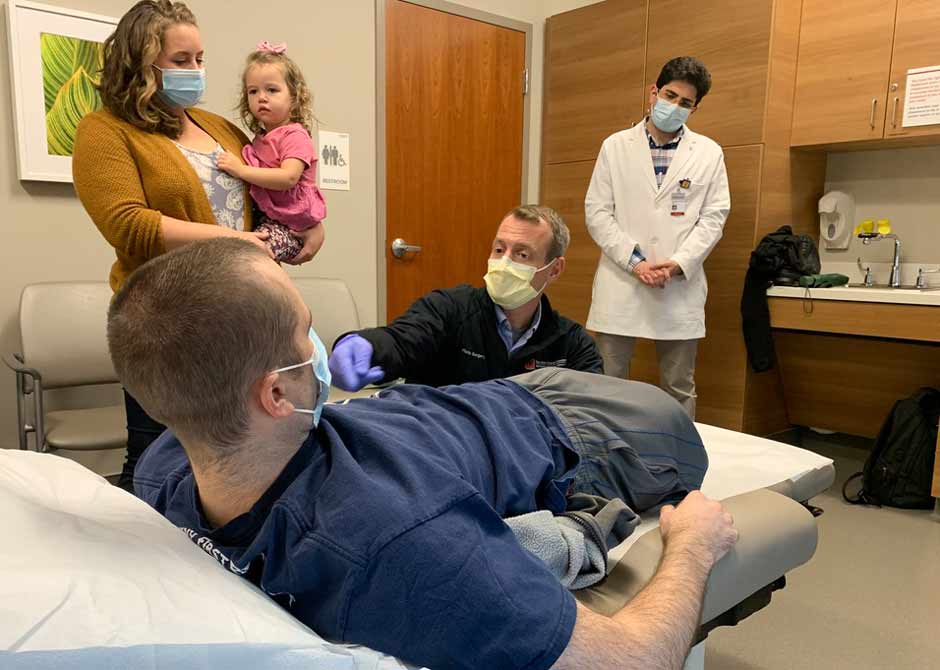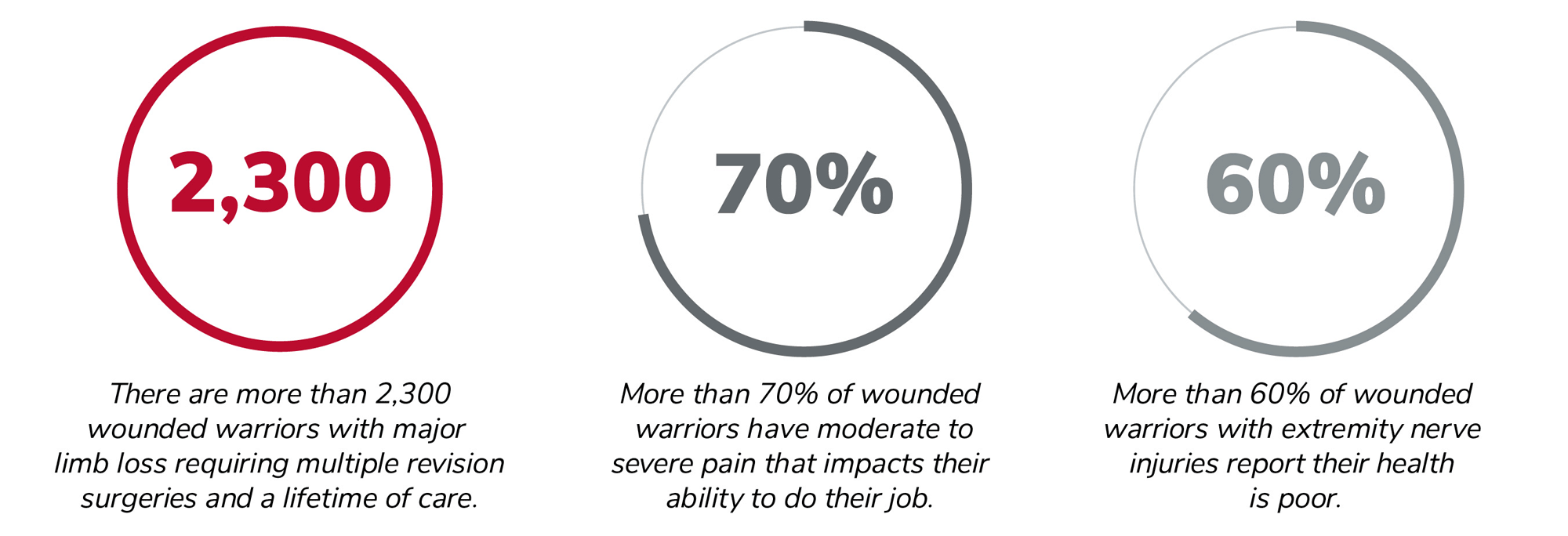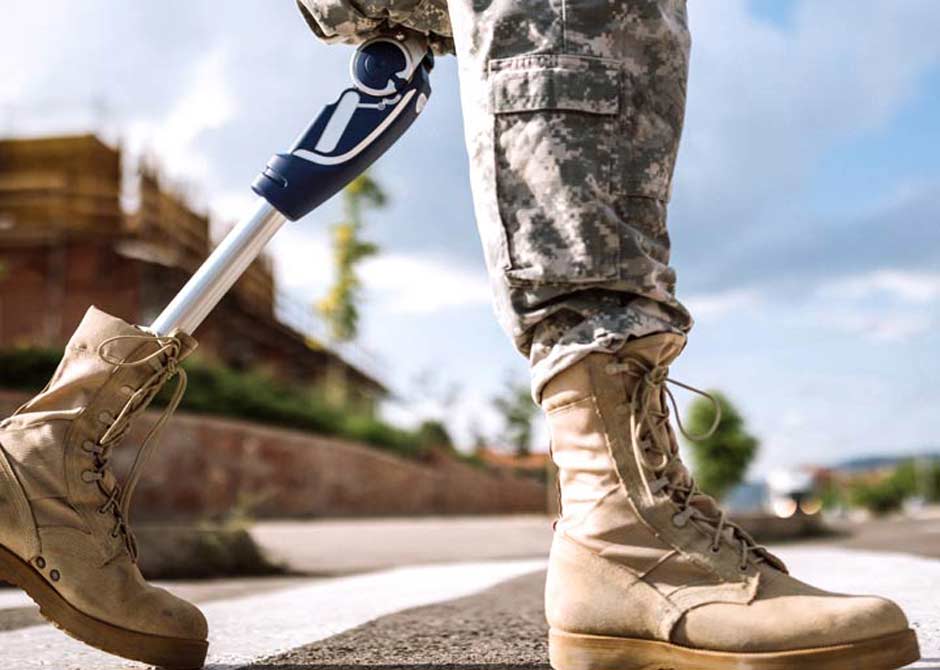
Treatment and Services
Modern warfare and extended conflicts present new challenges for today’s troops. Over the past two decades, our military members have faced added risks from unconventional weaponry, such as roadside car bombs and other improvised explosive devices, or IEDs.
Fortunately, medical advancements within the Military Health System and its collaboration with civilian health centers have led to unprecedented survival rates and allowed many more injured service members to return home to their families. After surviving that combat trauma, though, many veterans have gone on to live in debilitating pain and with other medical issues.
That’s why we’ve created the Military Medicine Program, a collaborative group of expert surgeons, military specialists and rehabilitation experts — many with combat experience themselves — who want to offer a better quality of life to our country’s wounded warriors.
Too often, service members with injuries have felt they’ve exhausted all options and resigned themselves to living in pain or dysfunction. Our team at the Ohio State Wexner Medical Center understands that complex problems require team-based solutions, and we’d like to help.

Since the turn of the century, wartime conflicts have produced more than 53,000 American wounded warriors. Many of them require a lifetime of care or still live in pain or with a poor quality of life, according to the Wounded Warrior Project.
Our coordinated care approach – As part of a massive academic medical center, we’re your one-stop shop for a treatment plan that’s delivered in an efficient and effective manner.
Our experience treating service members head to toe – We possess experience with the reconstruction and rehabilitation of combat-injured veterans, no matter how complex, how long you’ve had the injury nor what part of the body is impacted.
Our understanding of veterans’ unique needs – Many of the staff you will encounter in the Military Medicine Program also served in the armed forces.
Our commitment to ensuring wounded warriors can get this help – We are committed to working with government insurances, like TRICARE and the U.S. Department of Veterans Affairs, and have various partners in Columbus and nationwide that will provide the financial help for travel and lodging during treatment.
Our ability to train future military surgeons and physicians – We offer novel programs designed to help advanced surgical trainees and those already in the field to expand and maintain their skills.

Ohio State offers online second opinions for select specialties, providing valuable feedback so you can gain clarity and move forward with confidence.
Have questions? Visit our online second opinion FAQs for more information. Our online second opinion service costs $800.

Wounded warriors have a need to seek a better quality of life following their combat-related injury.
The aim of our Military Medicine Program is to understand the wounded warriors’ issues and apply the latest technologies, surgical techniques and procedures to improve pain and rebuild and restore what’s been lost as a result of trauma.
Dr. Souza came to the Ohio State Wexner Medical Center from Walter Reed National Military Medical Center in fall 2021 to establish this one-of-a-kind military reconstructive care program.
Capt. Nick Vogt lost both legs after an IED explosion in Afghanistan. Learn about how Ohio State helped him recover. Hear from more of our patients.